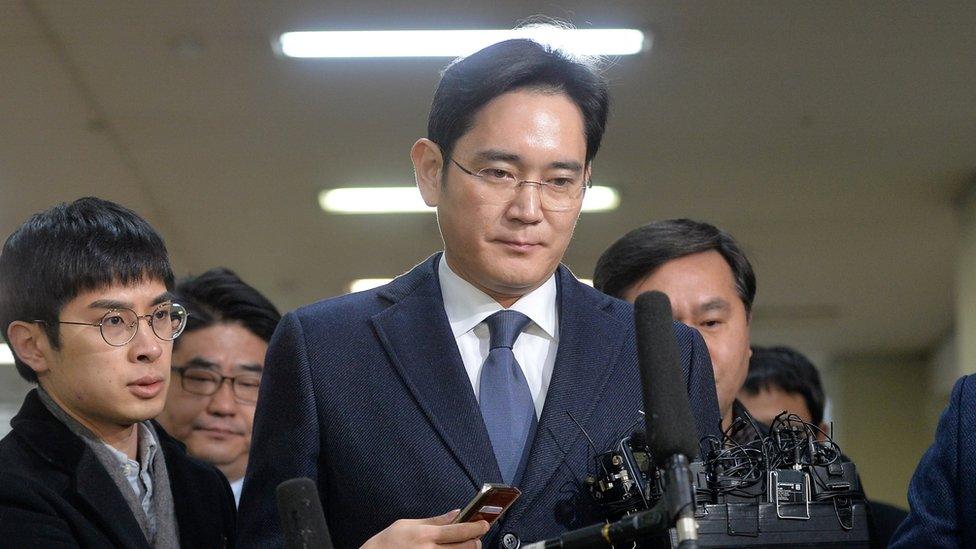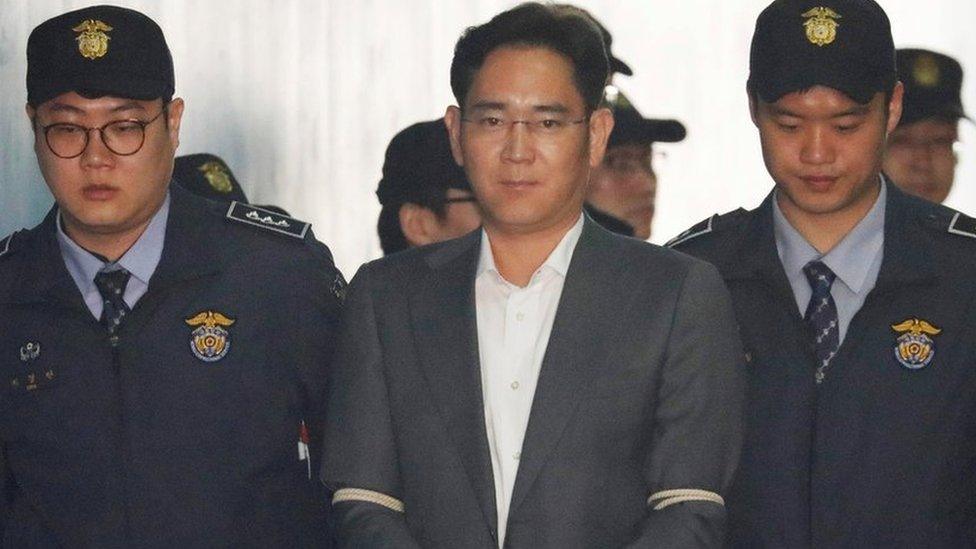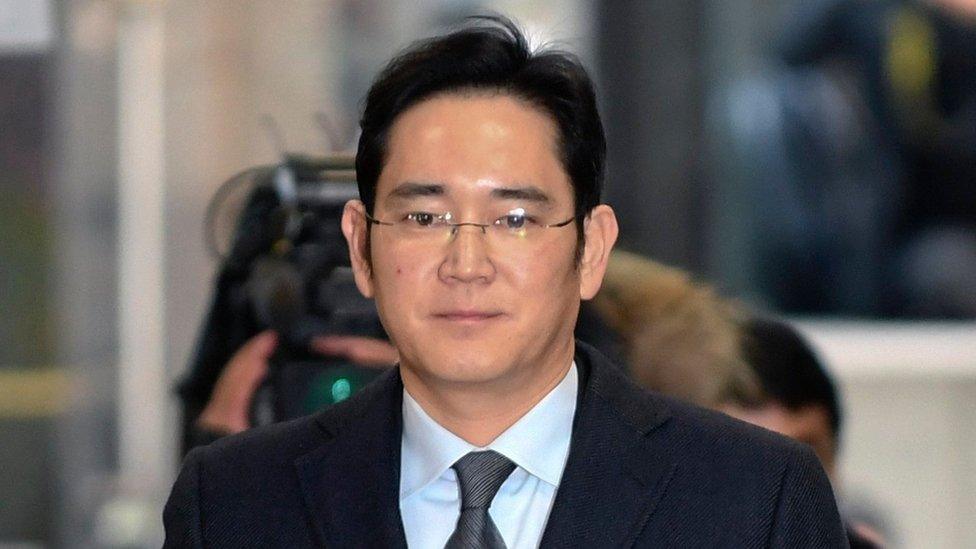Samsung forecast beats estimates despite scandals and fires
- Published

Samsung Group acting chief, Lee Jae-yong, has been in jail since earlier this year
Samsung Electronics is on track to report record annual earnings, despite its de-facto boss going on trial in a political corruption scandal.
It is forecasting a 48% rise in profits in the January-to-March period, thanks to strong memory chip sales.
That would be its best quarterly profit in almost four years and shows a recovery from the Galaxy Note 7 fiasco.
The estimates are not too shabby given the corruption allegations and the embarrassment of exploding phones.
The forecast $8.8bn (£7bn) profits don't include what the company is hoping to make from its new phone, the new and improved Galaxy 8, which hits the shelves later this month.
Analysts are saying Samsung's second quarter results should even be better than the first quarter, because of the hype surrounding the Galaxy 8 and the artificial intelligence technology, called Bixby, embedded in it.

The Samsung Galaxy S8 was launched last month in New York and London
Samsung's share price has also been performing well, climbing steadily over the last few months despite all the drama the company has been facing at home.
In fact, on the whole South Korea's stock market has been doing pretty well, with foreign funds pumping in $3bn.
After the recent political crisis - which saw the president removed from office and facing possible a corruption trial herself - there are hopes that whoever replaces her will push for real reform in the biggest conglomerates, known as chaebols.
But how realistic are those reforms in a country where the top 10 chaebols own more than a quarter of all business assets?
Samsung's sales alone make up a fifth of South Korea's GDP, and for many young Korean graduates getting a job in a chaebol is the most desirable outcome after years of toiling through a rigorous education system.
In the run-up to the presidential elections in May, candidates have made chaebol reform a major pillar of their campaign promises.
But unpicking the complex and powerful hold these family-run firms have over the South Korean economy will take more than just rhetoric.
- Published7 April 2017

- Published5 February 2018

- Published29 March 2017
